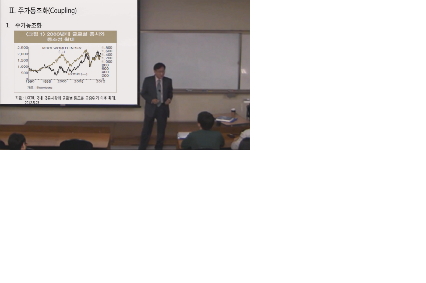This paper investigates the stock price lead effect relative to their level of foreign investor ownership in the Korean stock market. It is generally perceived that foreign investors dominate Korean stock market movement with their stronger research c...
http://chineseinput.net/에서 pinyin(병음)방식으로 중국어를 변환할 수 있습니다.
변환된 중국어를 복사하여 사용하시면 됩니다.
- 中文 을 입력하시려면 zhongwen을 입력하시고 space를누르시면됩니다.
- 北京 을 입력하시려면 beijing을 입력하시고 space를 누르시면 됩니다.

외국인 투자자의 소유지분 수준에 따른 주가 선도효과 연구 = Stock Price Lead Effect by the Level of Foreign Investor Ownership
한글로보기https://www.riss.kr/link?id=A30047597
- 저자
- 발행기관
- 학술지명
- 권호사항
-
발행연도
2003
-
작성언어
-
- 주제어
-
KDC
300
-
등재정보
KCI등재
-
자료형태
학술저널
- 발행기관 URL
-
수록면
27-45(19쪽)
-
KCI 피인용횟수
21
- 제공처
- 소장기관
-
0
상세조회 -
0
다운로드
부가정보
다국어 초록 (Multilingual Abstract)
This paper investigates the stock price lead effect relative to their level of foreign investor ownership in the Korean stock market. It is generally perceived that foreign investors dominate Korean stock market movement with their stronger research capability and faster access to gloval economic news. Therefore, it is the objective of this research to test whether the stock price of firms with higher level of foreign equity ownership, In fact, lead the stock price of firms with lower level of foreign equity ownership. The cross-autocorrelation analysis found that the stock returns on the higher level of foreign ownership lead the stock returns of lower level of foreign ownership even after controlling for the firm size effect. In addition, Granger causality regression, controlling for both portfolio autocorrelations and contemporaneous cross correlations, support the findings as well. It is also found that this lead-lag effect relative to the level of foreign ownership was more significant after the IMF foreign currency crisis due to the lift of the foreign equity ownership limits in the Korean stock market.
동일학술지(권/호) 다른 논문
-
한국 다국적기업의 모회사 노하우 해외이전에 대한 탐색적 연구 -조직적 결정요인들을 중심으로-
- 한국국제경영학회
- 최순규 ( Soon Kyoo Choe )
- 2003
- KCI등재
-
전략-조직의 적합성이 다국적 기업의 성과에 미치는 영향
- 한국국제경영학회
- 문창호 ( Chang Ho Moon )
- 2003
- KCI등재
-
- 한국국제경영학회
- 모수원 ( Soo Won Mo )
- 2003
- KCI등재
-
환율 변동성 예측 모형의 실증분석 -원/달러 환율을 중심으로-
- 한국국제경영학회
- 최생림 ( Sang Rim Choi )
- 2003
- KCI등재
분석정보
인용정보 인용지수 설명보기
학술지 이력
| 연월일 | 이력구분 | 이력상세 | 등재구분 |
|---|---|---|---|
| 2026 | 평가예정 | 재인증평가 신청대상 (재인증) | |
| 2020-01-01 | 평가 | 등재학술지 유지 (재인증) |  |
| 2017-01-01 | 평가 | 등재학술지 유지 (계속평가) |  |
| 2013-01-01 | 평가 | 등재학술지 유지 (등재유지) |  |
| 2010-01-01 | 평가 | 등재학술지 유지 (등재유지) |  |
| 2008-01-01 | 평가 | 등재학술지 유지 (등재유지) |  |
| 2006-07-21 | 학회명변경 | 영문명 : 미등록 -> Korean Academy of International Business |  |
| 2006-01-01 | 평가 | 등재학술지 유지 (등재유지) |  |
| 2004-01-01 | 평가 | 등재학술지 유지 (등재유지) |  |
| 2001-07-01 | 평가 | 등재학술지 선정 (등재후보2차) |  |
| 1999-01-01 | 평가 | 등재후보학술지 선정 (신규평가) |  |
학술지 인용정보
| 기준연도 | WOS-KCI 통합IF(2년) | KCIF(2년) | KCIF(3년) |
|---|---|---|---|
| 2016 | 2.45 | 2.45 | 2.15 |
| KCIF(4년) | KCIF(5년) | 중심성지수(3년) | 즉시성지수 |
| 2.25 | 2.33 | 4.114 | 0.56 |





 KCI
KCI 코리아스칼라
코리아스칼라



